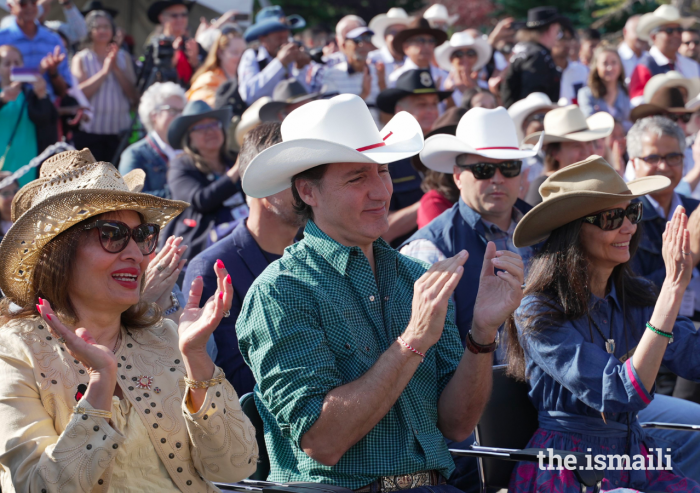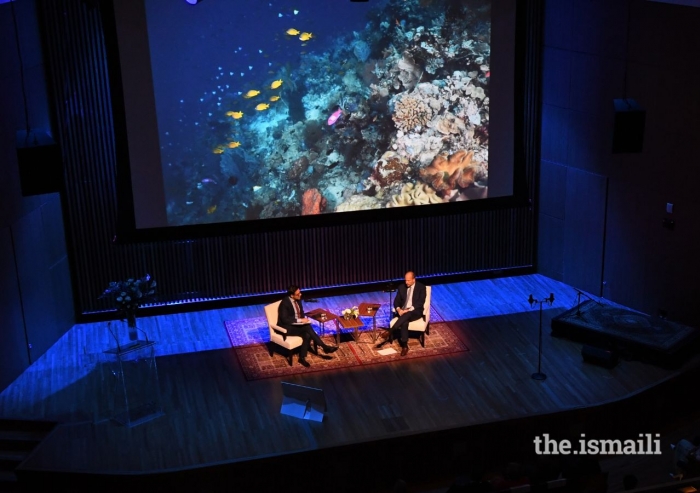Toronto, 20 May 2016 — The story of how the South African constitution was created, was the subject of this year’s Annual Pluralism Lecture. And it was all the more remarkable for the formidable storyteller who recounted it.
Justice Albie Sachs — heroic activist, freedom fighter and a former judge on the Constitutional Court of South Africa — delivered the talk, a yearly fixture of the Global Centre for Pluralism. Mawlana Hazar Imam introduced him as “a chief architect of South Africa’s new post-apartheid constitution, one of the most admired constitutions in the world.”
“In the pursuit of an effective pluralism,” said Hazar Imam, “we can learn a great deal from studying the South African constitution.”
In their struggle to define their post-apartheid nation, explained Justice Sachs, South Africans faced a fundamental choice between constructing a power sharing structure along the dividing lines of race, or striving for equality on the basis of a shared humanity.
Oliver Tambo, then president of the African National Congress was firmly against “power sharing between racial and ethnic groups,” recalled Justice Sachs. Tambo argued persuasively for “a common society of citizens, where rights are protected through a bill of rights — not because you are white or black or a member of a majority or minority, but because you are a human being.”
“That was his profound vision and approach,” said Sachs. “Not to institutionalise race, ethnicity in the structures of government,” but rather to “recognise pluralism through political pluralism.”
At the culmination of his talk, Justice Sachs descended the stage to present Mawlana Hazar Imam with a copy of South Africa’s Bill of Rights, which is now enshrined in the country’s constitution. It was a heartfelt gesture that capped his emotional story.
"We are so proud of this document," he said. "Your Highness, please accept South Africa's most precious gift to the world."
The Global Centre for Pluralism’s Annual Pluralism Lecture invites international leaders who have made a difference in the world to share their insights on pluralism. Past lecturers include Canada's Chief Justice Beverley McLachlin, former United Nations High Commissioner for Refugees António Guterres, and former UN Secretary-General Kofi Annan.
Held in the auditorium of the Aga Khan Museum yesterday evening, the event drew an eminent gathering, which included Princess Zahra and Prince Aly Muhammad, as well as former Canadian Governor General Adrienne Clarkson — who gave the closing remarks — and other prominent Canadian and international leaders.
Mawlana Hazar Imam has been on a visit to Canada since Monday to attend various meetings and events in Ottawa and Toronto. Earlier in the day, Hazar Imam chaired a meeting of the Board of Directors of the Global Centre for Pluralism. Later today, he is due to receive an honorary degree from the Pontifical Institute of Mediaeval Studies — in recognition of his efforts to strengthen civil society through the promotion of pluralism.








